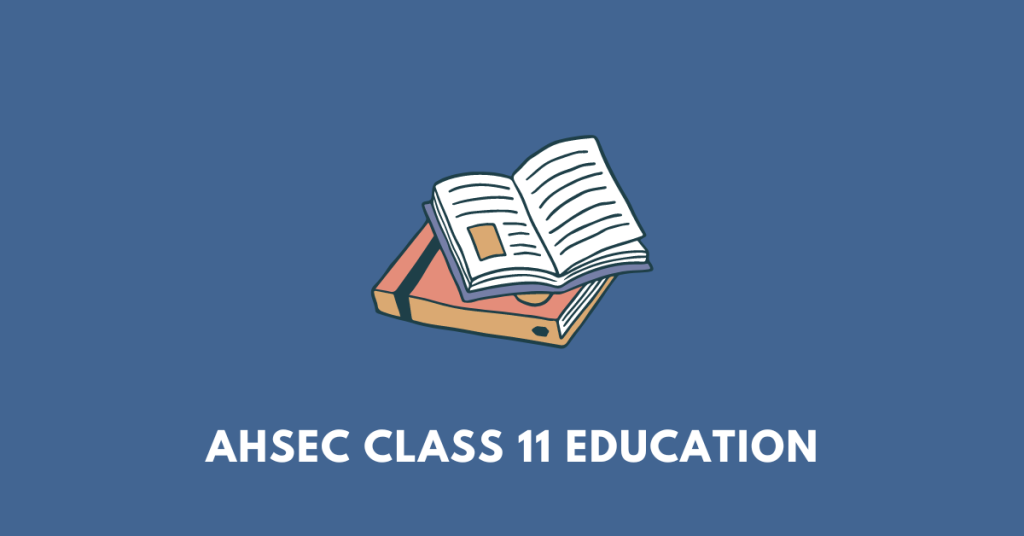Get class 11 Education chapters summary, questions, answers, textbook solutions, extras, and pdf guide if you are a student of AHSEC/ASSEB (Assam Higher Secondary Education Council) first year. The solutions made available here should be seen as references and nothing more. To access the solutions for each chapter, click on the links provided under each chapter. Please make the necessary changes.
| Select chapters |
| CHAPTER 1: Concept and Aims of Education |
| CHAPTER 2: Stages of Human Development |
| CHAPTER 3: School and its Organisation |
| CHAPTER 4 (I): Psychology and Education |
| CHAPTER 4 (II): Educational Psychology and its Significance |
| CHAPTER 5: Physical Basis of Mental Life |
| CHAPTER 6: Bases and Direction of Human Behaviour |
| CHAPTER 7: Primary Education in India and Assam |
About AHSEC Class 11 Education textbook
AHSEC Class 11 Education textbook covers a broad range of topics critical for the foundational understanding of education. It is structured into seven main chapters, each focusing on different aspects of education and human development. The first chapter, “Concept and Aims of Education,” delves into the fundamental principles and goals of education. It sets the stage for the subsequent chapters by providing a theoretical framework for understanding education’s role in society.
Chapter two, “Stages of Human Development,” discusses the various phases of human growth and development, highlighting the importance of each stage in shaping an individual’s educational needs and capabilities. The detailed analysis provides students with a comprehensive understanding of human developmental psychology.
The third chapter, “School and its Organisation,” explores the structural and functional aspects of educational institutions. It includes discussions on the roles and responsibilities of school administration, teachers, and students, as well as the significance of school environment in fostering learning.
Chapter four is divided into two parts: “Psychology and Education” and “Educational Psychology and its Significance”. These sections examine the psychological foundations of education and the critical role of educational psychology in enhancing teaching and learning processes. The chapters provide insights into how psychological principles can be applied to improve educational outcomes.
The fifth chapter, “Physical Basis of Mental Life,” addresses the physiological underpinnings of psychological processes. This chapter links the physical aspects of human biology to mental functions, offering a holistic view of the mind-body connection in the context of education.
Chapter six, “Bases and Direction of Human Behaviour,” delves into the factors influencing human behavior, including biological, psychological, and social determinants. This chapter provides a nuanced understanding of the complexities of human actions and interactions, crucial for educators in managing classroom dynamics.
The final chapter, “Primary Education in India and Assam,” provides an overview of the primary education system in India, with a specific focus on Assam. It discusses historical developments, current challenges, and future prospects, offering a comprehensive view of the primary education landscape.

Get notes of other boards, classes, and subjects
